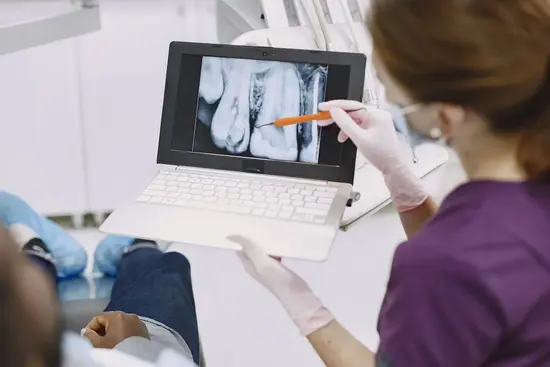
You're setting your sights on a rewarding career and your outcome is looking a lot like X-Ray Technician. Backed by the right higher education, you could find yourself operating cutting-edge technology, assisting in crucial diagnostic processes, and working closely with patients, all to have a vital role in patient care. As part of your educational journey, finding a program that meets your needs and aligns with your career aspirations is crucial. As a reliable source for educational information, we're here to empower you with the knowledge to make informed decisions about your future, thereby ensuring you’re on the best path to becoming an X-Ray Technician. Let's explore the fascinating aspects of this career, its significance in the medical field, and the educational path you'll need to follow to get there.
Studying a program in X-Ray Technician aims to equip students with the technical skills and knowledge needed to succeed in this crucial healthcare field. It's an investment in your future that not only paves the way for a rewarding career but also allows you to make a significant contribution to patient care. While the curriculum may vary, the primary goals of this program typically revolve around building proficiency in performing diagnostic imaging examinations, understanding radiographic positioning, adhering to radiation safety measures, and developing effective patient communication skills.


Studying a program in X-Ray Technician will equip you with skills and knowledge in various areas within the radiology field. This comprehensive program is designed for those with a passion for patient care and a keen interest in the technology and science behind diagnostic imaging. Through this program, you are expected to become proficient in performing imaging examinations, maintaining x-ray equipment, analyzing results, and maintaining patient records. Here are the key learning outcomes you can expect:
Before you begin a higher education program for an X-Ray Technician, you'll need to have certain prior experience and prerequisites under your belt. This vital preparation serves as the foundation for your understanding and knowledge of the subject matter. With a basic knowledge of biology and chemistry, you'll be better prepared to understand the intricacies of radiography. As some colleges may require you to have a high school diploma or its equivalent, it's important to ensure that your academic groundwork is solid. Prior experience in healthcare, such as volunteering in hospitals, could also be beneficial. Of course, having strong interpersonal skills and a knack for problem-solving will also be a great advantage in this field. Remember that your willpower, determination, and the ability to handle stress efficiently are key assets.

As a postgraduate in the field of X-ray technology, numerous career opportunities beckon you. With this advanced qualification, you not only possess the ability to take and analyze x-rays, but also have a deep understanding of how to use complex imaging technology and interpret the images for the diagnosis and treatment of various medical conditions. This makes you a vital part of any healthcare team. You could find yourself working in hospitals, doctor's offices, diagnostic laboratories, or even exploring research opportunities in different scientific institutions. You can also move on to specialized fields such as computed tomography (CT), magnetic resonance imaging (MRI), mammography, and others.
You'll be pleased to know that post-graduates in the field of X-ray technology can expect a rewarding earning potential. According to the U.S. Bureau of Labor Statistics, as of May 2023, the median annual wage for radiologic technologists, including X-ray technicians, was $76,020. Choosing to further your education as an X-ray technician not only benefits you in terms of dynamic career options but is economically rewarding as well. As you continue to augment your skills and experience, you may discover even greater financial prospects in this stimulating field.
As a postgraduate in the X-ray Technician field, several exciting job opportunities are open to you. You could work as a Radiologic or X-ray Technician, where you'll be responsible for capturing images of a patient's body using X-ray equipment. If you prefer a supervisory role, consider becoming a Radiology Manager, ensuring all imaging processes run smoothly at a healthcare facility. As a Radiation Therapist, you could specialize in using radiation treatments for patients with cancer and other diseases. Alternatively, you might find fulfillment in the position of Diagnostic Radiologist, interpreting radiological examinations and possibly conducting interventional procedures. Your advanced education can offer a path to specialty areas like Mammography or Computed Tomography. Remember, the earning potential varies widely based on the exact role, employer, location, and your level of experience.